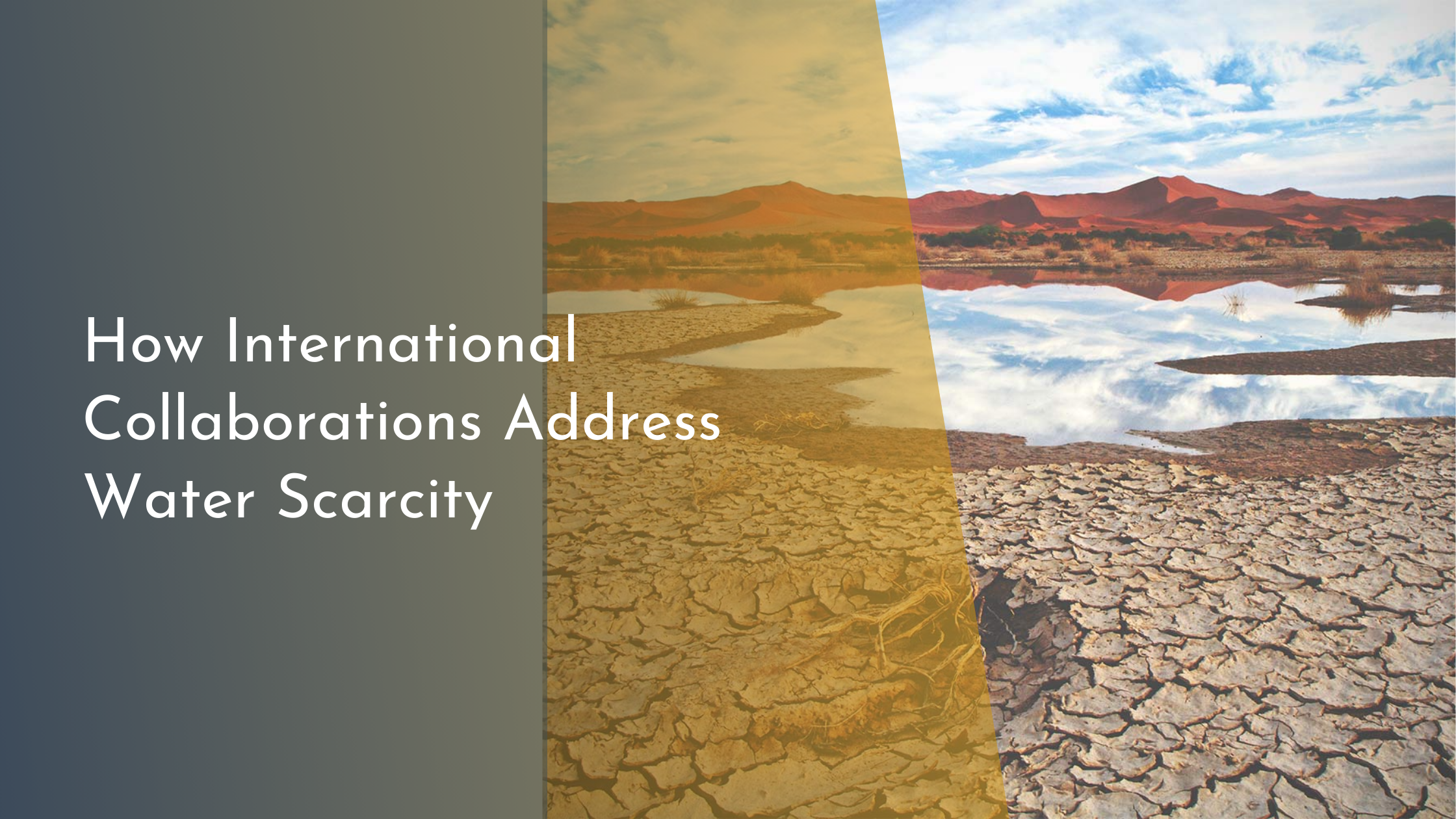How International Collaborations Address Water Scarcity
Water scarcity is a pressing global issue impacting millions of people across the world. As populations grow and climate change intensifies, the demand for fresh water continues to rise, making efficient water management more critical than ever. Recognizing that water scarcity knows no borders, countries are increasingly turning to international collaborations to find sustainable solutions. Through collective efforts, nations are not only sharing resources and innovations but are also forging paths to a more water-secure future. This article explores how global unity, cross-border cooperation, and successful case studies are addressing the challenge of water scarcity, offering hope for the years to come.
Global Unity in Tackling Water Challenges
The issue of water scarcity affects both developed and developing countries, prompting the need for a unified global response. International organizations such as the United Nations and World Bank have been pivotal in facilitating discussions and agreements focused on sustainable water management. These entities provide platforms for countries to come together, exchange knowledge, and commit to joint efforts in addressing this urgent challenge. Through summits, forums, and treaties, nations are uniting to prioritize water security, ensuring that global resources are utilized efficiently and equitably.
Cross-border cooperation is also bolstered by various regional organizations and partnerships, such as the European Union Water Initiative and the African Ministers’ Council on Water. These groups are dedicated to promoting sustainable water policies and practices among member states, enhancing regional stability, and fostering economic growth. By working together, these entities help countries develop comprehensive strategies that address specific regional challenges, from droughts and floods to water pollution. This collaborative approach not only strengthens individual nations but also contributes to global water security.
Innovations Born from Cross-Border Cooperation
International collaborations often lead to the development of innovative solutions that might not emerge within a single nation. By pooling resources and expertise, countries can explore new technologies and methodologies to enhance water management. For instance, nations have collaborated on advancements in desalination technology, which allows for the conversion of seawater into potable water, providing a reliable source of fresh water for arid regions. Such technological breakthroughs are essential in combating water scarcity, and they are made possible by the collaboration and shared knowledge of diverse international partners.
Moreover, data sharing and joint research initiatives have led to significant advancements in water management. By working together, countries can better understand water cycles, predict weather patterns, and develop adaptive strategies to mitigate the impacts of climate change. Collaborative research has facilitated the development of precision irrigation technologies and water-saving agricultural practices, reducing water consumption and increasing crop yields. These innovations reflect the transformative power of international cooperation, proving that when countries unite, they can achieve remarkable progress in addressing water scarcity.
Case Studies: Successes in Water Resource Sharing
One notable example of successful international collaboration is the Indus Waters Treaty between India and Pakistan. Despite historical tensions, these neighboring countries have maintained a cooperative relationship over the shared waters of the Indus River for more than 60 years. The treaty has been instrumental in preventing disputes and ensuring equitable water distribution, demonstrating how diplomacy and shared interests can lead to effective water management. This collaboration serves as a model for other regions facing similar challenges, highlighting the potential of international agreements in resolving water-related conflicts.
Another success story is the Nile Basin Initiative, which brings together the countries sharing the Nile River to manage its resources sustainably. Through this partnership, member countries have engaged in joint projects to improve water infrastructure, promote sustainable agricultural practices, and enhance regional cooperation. The initiative has fostered dialogue and trust among nations, enabling them to address shared challenges and create mutually beneficial solutions. Such examples underscore the importance of international collaboration in achieving water security, proving that shared resources can lead to shared prosperity.
A Hopeful Path Forward Through Collaboration
Looking ahead, the potential for international collaborations to address water scarcity is immense. As countries continue to recognize the interconnectedness of their water resources, there is an increasing willingness to engage in cooperative efforts. By building on existing partnerships and forming new alliances, nations can further enhance their collective capacity to manage and protect water resources. The future of water security depends on continued commitment to international collaboration, fostering a global community united in its pursuit of sustainable water management.
The road to addressing water scarcity is undoubtedly challenging, but the progress made through international collaboration offers hope. By sharing resources, knowledge, and innovations, countries can overcome the barriers posed by water scarcity and build a more water-secure world. The successes achieved so far showcase the power of unity and cooperation, reminding us that together, we can tackle even the most daunting global challenges. As we move forward, ongoing international efforts will be crucial in ensuring that every person has access to safe, clean water, creating a brighter future for all.
The challenge of water scarcity is one that transcends national borders, demanding a global response rooted in unity and collaboration. Through international partnerships, countries are making strides in developing innovative solutions, sharing valuable resources, and addressing shared challenges. As evidenced by successful collaborations like the Indus Waters Treaty and the Nile Basin Initiative, cross-border efforts can lead to significant progress, fostering peace and prosperity. With continued commitment to international cooperation, there is hope that we can secure a sustainable and water-rich future for generations to come. Let us embrace the spirit of collaboration and work together to ensure that access to clean water is a reality for all.

